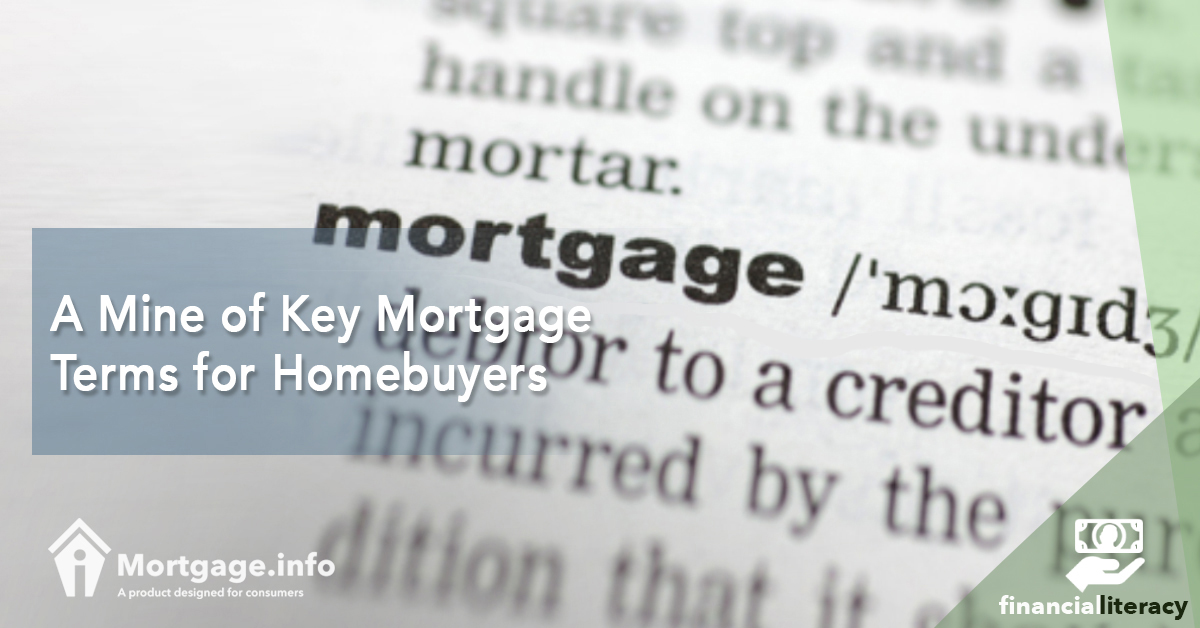April is a fine time to bask in the spring sunshine to shop for homes. It is also considered as Financial Literacy Month. In anticipation of this, we will not look far and go over concepts close to homebuying such as mortgages, downpayments and closing costs. Come to think of it, these technical terms can be a hurdle in itself and by learning or relearning certain mortgage terms, first-timers and seasoned homebuyers can come up with better choices when taking out mortgages.
A Glossary of Mortgage Terms
We have gathered these mortgage terms that are key to a better understanding of how mortgages work in general.
Adjustable-rate mortgage: A mortgage whose interest rate is variable and whose monthly payments will change as the rate adjusts at some point in the loan term.
Amortization: This process involves the reduction of the principal balance of the loan when you as a borrower make monthly payments.
Annual Percentage Rate: Known for its short form, APR, it takes into account the interest rate plus the fees on the loan.
Appraisal: An assessment of the home’s fair market value conducted by an independent, professional appraiser.
Closing costs: These are fees and charges needed to settle or close the loan. Fees for origination; title search, recording and insurance; appraisal; and credit report are examples of closing costs. Some closing costs need to be paid upfront or can be included in the loan balance.
Credit report: It records your past debts and significant financial events and is used by the lender to determine your creditworthiness or risk.
Credit score: Your credit rating based on your credit report, is computed using FICO or VantageScore. The higher your credit score, the higher your chances of getting approved for the loan and obtaining a lower rate.
Debt-to-income: A ratio measuring your capacity to repay by dividing your monthly debt payments, including on the mortgage, by your gross monthly income. Under certain standards, your mortgage payment should never be more than 31% of your total monthly income and your total monthly debt should not exceed 43% of your gross monthly income.
Discount points: You pay these points to lower your interest rate at closing. A discount point is equivalent to one percentage point of the loan amount.
Downpayment: The percentage of the purchase price that you pay in cash. Down payments can go as low as 3% to 40% for large loans, depending on your loan type.
Escrow: It could mean two things: (a) an account held by a third party containing money or documents prior to the loan closing or (b) an account held by the mortgage lender or servicer containing payments for your property tax and homeowner’s insurance.
Fixed-rate mortgage: A mortgage that has a fixed interest rate and whose payments (principal and interest) will remain the same throughout the life of the loan.
Interest rate: The rate you are charged on your mortgage.
Loan term: The number of years you will repay your loan, e.g. 30 years for 30-year mortgages.
Loan-to-value ratio: It is the difference between the loan’s outstanding principal balance and the property’s appraised value. The LTV will determine if you have equity in your home or underwater on your mortgage.
Mortgage: A loan used to finance a home purchase. It also refers to a legal document held by the lender securing repayment of the loan. Type. Based on the kind of interest rate, we have the fixed-rate mortgage and adjustable-rate mortgage. Mortgages can also be classified as government or not. FHA, VA, and USDA loans are examples of government loans. Conventional loans are non-government loans and can be conforming loans if they are eligible for purchase by Fannie Mae or Freddie Mac. Loans that exceed the conforming limits are called jumbo loans.
Mortgage insurance: Also known as private mortgage insurance for conventional loans and mortgage insurance premiums for FHA loans, mortgage insurance is required on loans with down payments less than 20% of the purchase price.
Owner-occupied: This refers to homes occupied by the owners as their primary residence. Vacation homes and investment homes are not owner-occupied and called second homes.
PITI: Short for principal, interest, (property) taxes, and (homeowner’s and PMI, as applicable) insurance.
Preapproval: This and prequalification refer to the preliminary process of getting a mortgage before shopping for a home. It’s the next step to prequalification whereby the lender gives you an estimate of how much it can lend based on the information you give. In the preapproval stage, the lender will seek credit and income information to determine how much it can lend you.
Prepayment penalty: When you pay off your loan or refinance it before a scheduled date, you will incur a prepayment fee.
Rate lock: At your request, a lender can hold down a rate to prevent it from going up while your loan application is pending. The period when this rate is held down is called a rate lock period.
Uniform Residential Loan Application: Known as Form 1003, the standard loan application developed by Fannie Mae and required by most lenders.
We hope we are able to boost your literacy about mortgages. For more mortgage terms, visit this and this.

